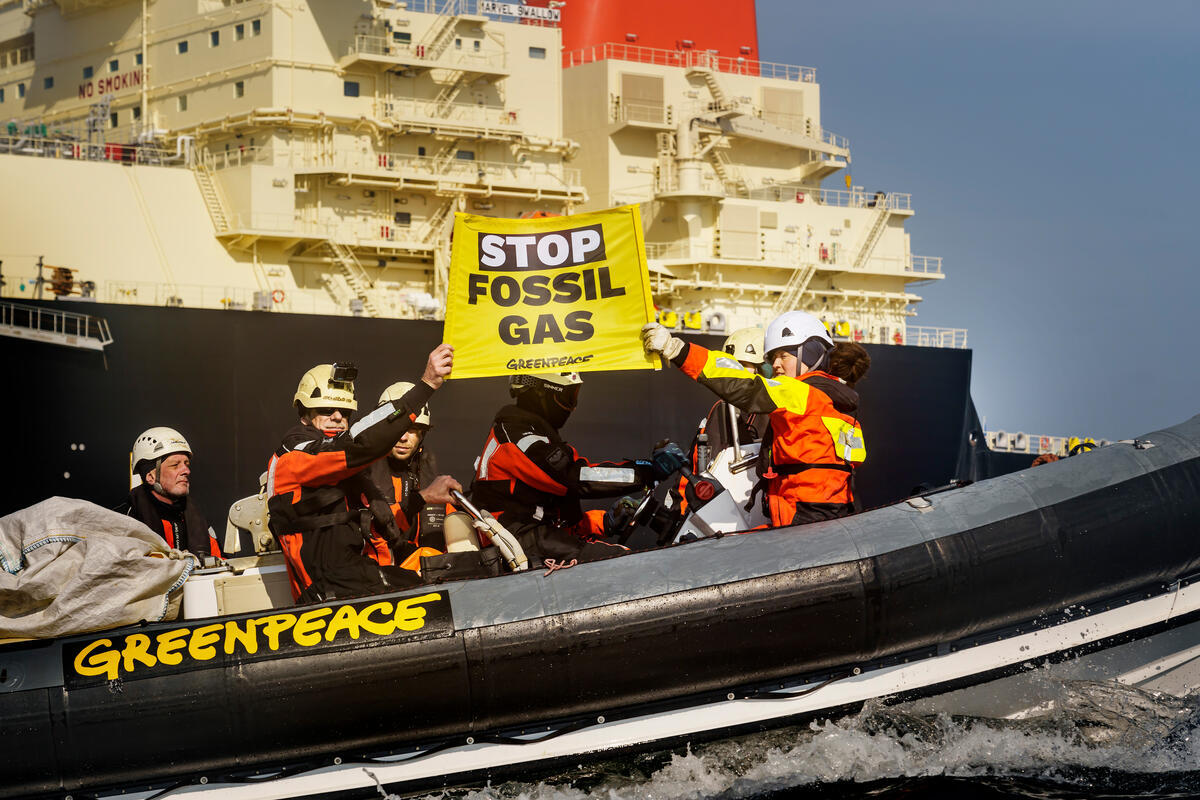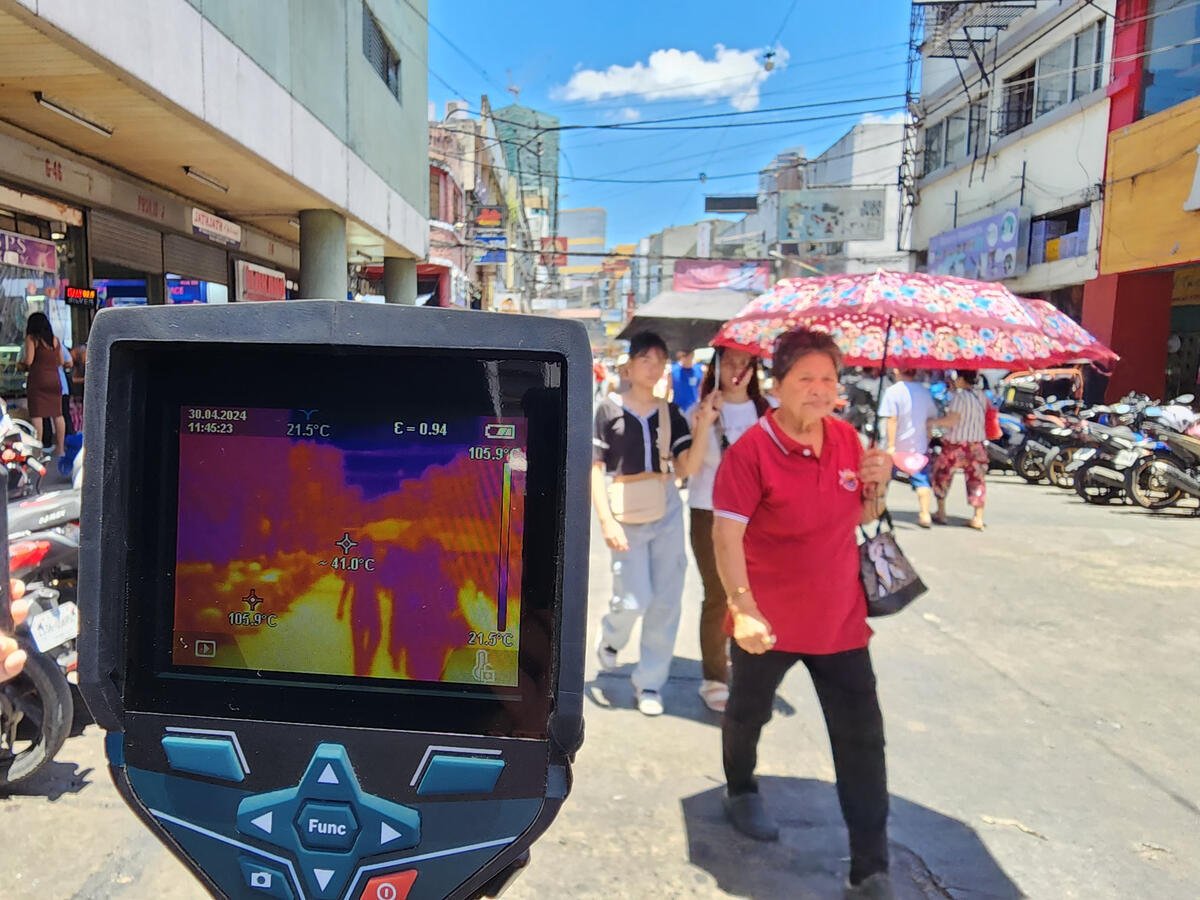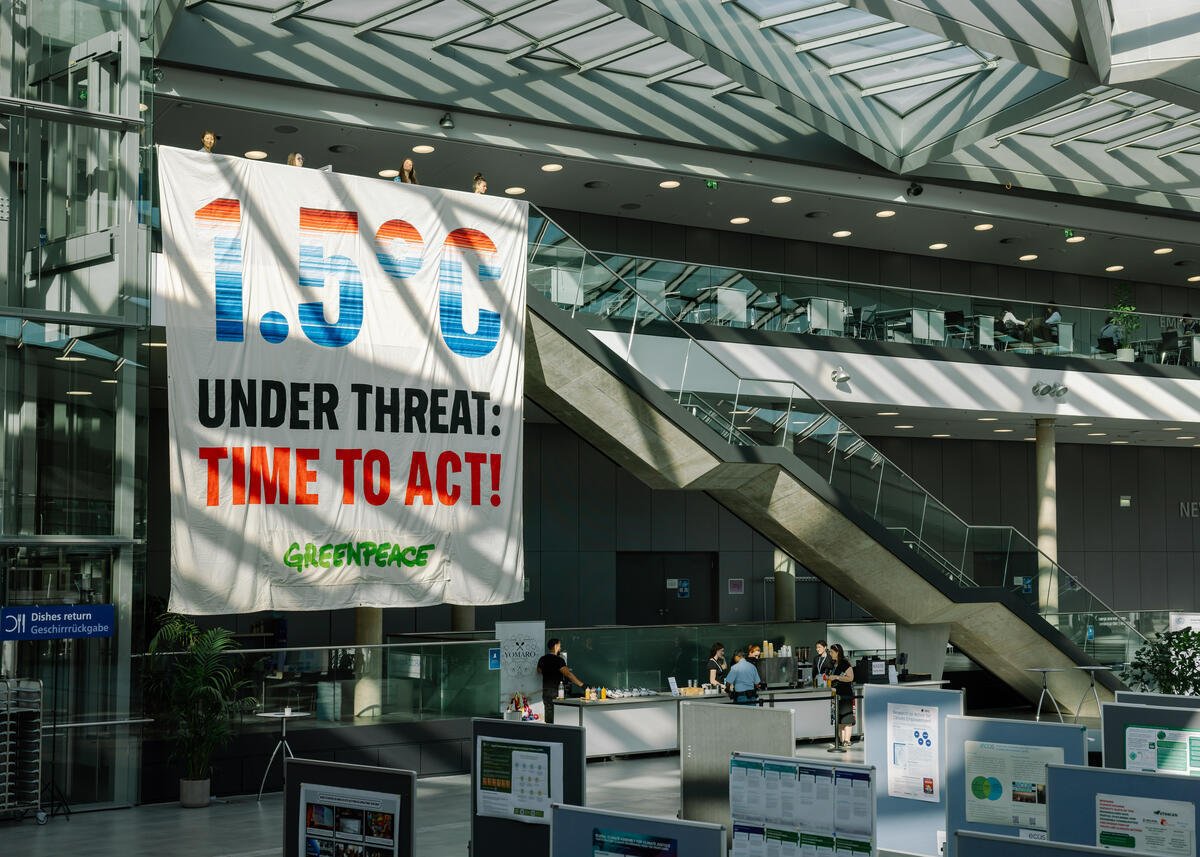Bucharest, Petrom City – 20 Greenpeace activists from Romania, Bulgaria and Czech Republic gathered this morning at OMV Petrom headquarters in Bucharest, Romania, to protest against the proposed Neptun Deep project which, if it enters into operation, would threaten the EU’s carbon neutrality target, and harm wildlife in the Black Sea. It would also become Europe’s largest offshore gas drilling project and make Romania the EU’s largest fossil gas producer. The activists painted the message ‘No New Gas’ on the OMV Petrom building.
Photos and videos are available in the Greenpeace Media Library
While activists painted ‘No new gas’ in giant yellow letters on the building, others displayed messages such as ‘Stop Neptun Deep’, ‘Don’t destroy the Black Sea’, ‘No future for gas’ or ‘Stop fossil gas’. Neptun Deep, the first deepwater drilling project proposed in the Romanian Black Sea, is one of many gas infrastructure projects currently under development in Europe, where fossil fuel companies are using the excuse of “securing Europe’s energy supply” to push their gas agenda.[1] The Neptun Deep gas transmission pipeline could even be granted public funding from the EU.[2] Meanwhile, several analyses show that the EU does not need expanded gas supply to meet its declining energy demand.[3]
“New fossil gas projects are incompatible with limiting global heating to 1.5°C. The last thing the world needs is new fossil gas drilling operations – not in Romania and not anywhere else. Fossil gas is a destructive fossil fuel just like oil and coal. To secure a safe and healthy future for all, all new fossil gas projects in the EU need to be stopped now. Instead of drilling for and burning even more fossil gas, we need to speed up the transition to renewable energies and improve energy efficiency,” said Lisa Göldner, European Energy campaigner, Greenpeace Germany.
“OMV Petrom can’t be trusted. The company refuses to disclose the massive amounts of chemicals that will be dumped into the Black Sea to extract this gas, while daring to tell anyone who will listen that this project has a negative carbon footprint. The reality is OMV is planning to extract methane – a greenhouse gas over 80 times more powerful than CO2 in a 20 year time frame – while harming fish, marine mammals, and terrestrial species and their habitats. Bad for nature, bad for climate, bad for people,” added Alin Tanase, Campaigns Coordinator at Greenpeace Romania.
According to an estimate commissioned by Greenpeace Romania, the project could produce more than 200 million tonnes of greenhouse gas emissions over 20 years, making this project a threat to the EU’s carbon neutrality target. In Austria last month, 76 scientists joined Greenpeace to call on OMV to stop the Neptun Deep project over climate and pressure on precious marine ecosystems concerns. A protest against the development of Neptun Deep and other new gas infrastructure across Europe is also taking place in Vienna today. Gas lobbyists from major European fossil fuel companies were due to meet there this week at the European Gas Conference, but the event was postponed indefinitely for fear of protests.[4]
ENDS
Notes:
Photos and videos are available in the Greenpeace Media Library
[1] The “energy security of the EU” excuse is a fallacious argument massively used by fossil fuel companies to impose harmful projects that will lock Europe into gas dependency. The Global Energy Monitor map gives a good overview of the gas projects currently planned in Europe, including LNG terminals, pipelines and extraction sites. Greenpeace is also closely following TotalEnergies’ moves to impose US shale gas through the installation of an LNG terminal in France. Total is the first exporter / seller of US gas in Europe and in the world.
[2] While the EU no longer directly funds fossil fuel extraction, it could financially support the proposed Tuzlar-Podisor pipeline that would transport the gas from the new Neptun Deep gas field to the shore.
[3] New Analysis: EU does not need expanded oil and gas supply to meet declining energy demand (Oil Change International)
How Europe can cut natural gas imports from Russia significantly within a year (International Energy Agency)
[4] European Gas Conference in Vienna Postponed due to Protests (Vindobona.org)
Contacts:
Mihnea Matache, PR Specialist, Greenpeace Romania: +40749135749, [email protected]
Manon Laudy, media coordinator for the European Energy campaign, Greenpeace Netherlands: +336 49 15 69 83, [email protected]
Greenpeace International Press Desk, +31 (0)20 718 2470 (available 24 hours), [email protected]
Follow @greenpeacepress on X/Twitter for our latest international press releases.



